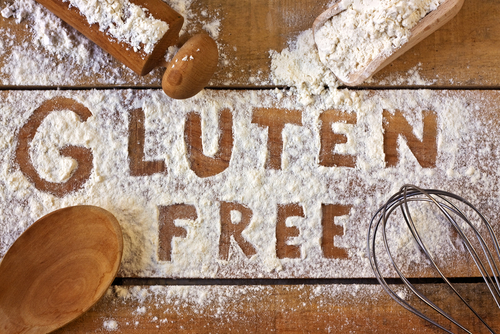
We all know to avoid fast food, sugary treats and gobs of animal fats, but there are a few foods that are thought of as healthy and marketed as healthy alternatives, but may not be as healthy as you think. Here is a list of a few of the common offenders:
Artificial Sweeteners
Touted as the solution to replace sugar and stave off weight gain, artificial sweeteners have been marketed as a dieters dream product.
In reality, research has shown usage of artificial sweeteners can actually lead to an increase risk of obesity, metabolic syndrome, and type 2 diabetes. People end up consuming more calories when they eat or drink products with artificial sweeteners – quite the opposite of what the marketing companies would have you believe. Researchers suspect it’s the body’s way of making up for calories it thinks it received in the diet foods but didn’t, in addition to the body getting a taste for sweet and triggering a craving cycle.
The other problem with artificial sweeteners is that they are linked to a slew of unpleasant side effects including headaches, confusion, dizziness, reduced good bacteria in the gut, depression, tremors, joint pain, fatigue, migraines, change in heart rate, and more – but I trust this paints a pretty clear picture.
Margarine
Many people mistakenly think margarine is a healthy alternative to butter, but margarine is made from chemically processed vegetable oils, which have generally been bleached, flavored, colored, and deodorized to make them ‘edible’. The calorie count of margarine is similar to butter, but people tend to eat more of it because they think it’s healthier.
Ultimately anything that contains multiple ingredients that have been processed up the wazoo is a bad choice when there are alternatives that are healthier, cleaner, less processed, and even offer the added bonus of health benefits. It’s a no-brainer. The best alternatives? Small does of butter, coconut oil, or olive oil.
Soy Protein Isolate
Soy protein isolate is a heavily processed, cheap source of protein. Due to its low cost, it can be found in an alarmingly large number of products – many you would never even suspect.
All soy isn’t necessarily bad, nor is very small amounts, but the fact is that unfermented soy, like soy protein isolate, has been linked to a long list of unpleasant health risks that include cancer, thyroid problems, kidney stones, asthma and allergies. Soy protein isolate mimics estrogen, and can upset the bodies normal hormonal state.
Soy also contains some well-known anti-nutrients; enzyme inhibitors phytates, and goitrogens. If you are looking for a vegetarian option, try adding fermented soy products like tempeh, natto, and miso – huge health benefits come with fermented soy products. There are also other options to replace soymilk, such as coconut milk or rice milk – both are pretty tasty. If you do choose to consume small amounts of unfermented soy, the one thing you cannot skimp on is the organic stamp.
Reduced fat and Fat free foods
The label on these foods should be reworded to say “reduced fat/tons of added sugar”, because that is exactly what you are getting. Hey, they need something to make up for the lack of flavor don’t they?
Low fat is not synonymous with low calorie, it is generally the reverse, and it is certainly not synonymous with “healthy”. Diet bars and low-fat foods like yogurts usually have more sugar, salt, and unhealthy fillers to make them palatable. What is even worse, people typically eat double the serving they should because they are not satisfied or think that it’s okay to eat more because it’s “healthy.” If there are two slogans that you always remember, let them be these: You need to eat fat to lose fat. & Sugar is the biggest enemy to weight loss.
Frozen diet dinners
These little puppies are convenient, and do offer an easy way to keep calories in check, but that is about as far as the positive comments go. Frozen dinners are more often than not heavily processed, and filled with salt and preservatives. They fall short of any real nutritional value, generally lacking a decent portion of vegetables, rendering them relatively empty calories. As an alternative, take one day a week and cook up a big recipe of your favorite food, and freeze it yourself for the week into single serving containers.
For the record, this is not to vilainize frozen foods as a whole. Frozen fruits and vegetables are chock full of vitamins and minerals, and have usually been picked at the peak of their ripeness and immediately flash frozen so they are often as nutritious as fresh. The key is ensuring only the fruit or vegetable is listed on the label with no added sauces, sugar or salt.
Deli sandwich or wrap
How many times have you stopped by the local deli to grab your healthy turkey wrap or sandwich, all full of veggies, easy mayo? While you are on the right track, highly processed deli meats are high in nitrates, which are linked to cancer. Don’t be fooled by “natural” meats that claim to be nitrate free – if it has cultured celery extract, you are still getting nitrates, and often even more than its not so “natural” counterpart. Organic deli meats are your best bet, but there are some meats on the market in the oven roasted variety that contain no nitrates at all anything that is whole chicken breast meat is generally ok. When in doubt ask for an ingredient list, they should be able to provide you with one.
Gluten-Free Products
Gluten-free products are all the rage and although some gluten-free products are healthy, by no means does the label “gluten-free” automatically equate to healthy. Processed is processed, so if you are switching for the sake of general health, or weigh loss – and think the “gluten free” stamp means you are getting a healthy product, you may be surprised. Going gluten free should mean incorporating more real food vs uber-processed and packaged junk.
Thankfully there are many gluten free products that are healthy and fit the bill, but there are also many that don’t. Some gluten free foods cannot be found with organic ingredients, are full of GMO’s, and are higher in calories than their gluten-containing counterparts.
For those with a sensitivity or allergy, it is truly fantastic that there is such a wide array of selection available to choose from but just like any healthy diet, stay away from processed foods, added sugars, and don’t buy it just because it says ‘gluten free’. Read labels, and become familiar with ingredients you should avoid – just like you would with any food you buy.
Ultimately, the best gluten free foods come as just one ingredient: fruit, vegetables, meat, organic fermented soy products, quinoa, etc.
Spinach Pasta
Just because a noodle is green, it does not mean it is healthier than plain old blood sugar spiking white pasta. The amount of spinach actually in spinach pasta is so small that it doesn’t add up to much benefit – and it certainly doesn’t justify eating a huge bowl of it. You’re much better off having a half-cup of whole-wheat pasta and save the spinach for a side salad or smoothie.
Wheat Bread
What does “wheat” mean anyways? Nothing, nada, zip. Don’t be fooled by “wheat” bread products. If the package doesn’t specifically say “100-percent whole grains,” then it’s likely just plain old white bread with a touch of wheat flour mixed in for marketing. The fiber content is a good tip off as well; true “whole grain” breads should have at least 2 grams fiber per serving.
Protein Bars
Not all protein bars are unhealthy, but the ones that are, are the ones you should avoid. Read labels – some protein bars have low sugar, natural ingredients, and added vitamins and minerals, which makes them an acceptable choice as a meal replacement. Others may shock you, and have little or no nutritional advantages while being loaded with sugar, artificial colors, flavors and preservatives – nothing more than a glorified candy bar. Bottom line: if your protein bar has more than 8 grams of sugar, and a bunch of ingredients you can’t pronounce, steer clear.
Bottom Line: Just because something is marketed as a healthy alternative, doesn’t mean it is healthy. Read labels, and get to know what is in your food.


